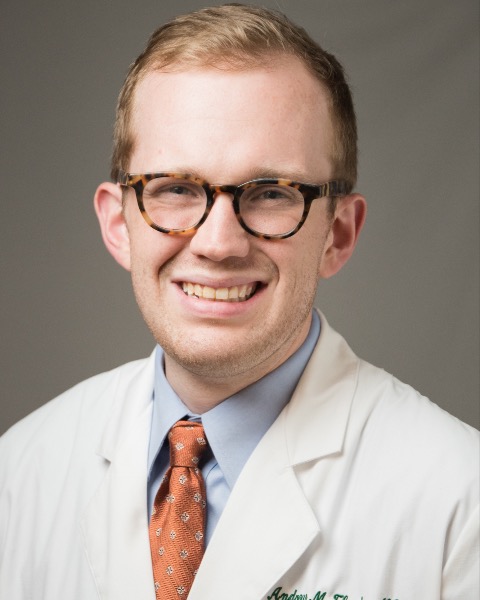Colorectal
E102: Colorectal Cancer in the Young: An AACR Project GENIE Clinicogenomic Analysis

Andrew M. Fleming, MD
Surgery Resident
Department of Surgery, University of Tennessee Health Science Center
Memphis, Tennessee, United States
Andrew M. Fleming, MD
Surgery Resident
Department of Surgery, University of Tennessee Health Science Center
Memphis, Tennessee, United States
Andrew M. Fleming, MD
Surgery Resident
Department of Surgery, University of Tennessee Health Science Center
Memphis, Tennessee, United States- JD
Jeremiah L. Deneve, DO, FACS
Associate Professor of Surgery
Department of Surgery, University of North Carolina, United States 
David Shibata, MD, FACS, FSSO, FASCRS
Professor and Chair of the Department of Surgery
University of Tennessee Health Science Center, Department of Surgery
Memphis, TN, United States
ePoster Abstract Author(s)
Submitter(s)
Author(s)
Incidence of colorectal cancer (CRC) in young patients is rising. Worse outcomes in patients with early-onset CRC (age ≤45 years) suggest fundamental age-related differences in tumor biology. The current study comprises an analysis of age-stratified mutational profiling of CRC using the largest publicly accessible cancer clinicogenomic dataset.
Methods:
Patients with CRC were identified within the American Association for Cancer Research (AACR) Project Genomics Evidence Neoplasia Information Exchange (GENIE) dataset “GENIE Cohort v14.0-public,” released September 2023. Exclusion criteria included non-adenocarcinoma histology, non-primary tumor sample origin, and age between 45—65 or age unknown. Fisher’s exact tests were used to compare sample-level genomic alterations, and the Benjamini-Hochberg method was used to correct for multiple hypothesis testing. Statistical significance was denoted with q< .05. Log2 alteration ratios and -log10 p-values were used to generate volcano plots. Frequency plots and bar graphs were used to visualize differential rates of mutations between groups. Subgroup analyses excluding the highest quartiles of mutation count and fraction genome altered (FGA) were performed.
Results:
Of 4,982 samples included, 1,842 were from patients age ≤ 45 years, and 3,140 from patients age >65 years. Median age of the younger group was 40 years [interquartile range 35—43], and the groups were similar regarding patient sex. Patients age ≤ 45 years more often demonstrated mutations in APC (70.2% vs. 60.8%, q< .0001), TP53 (71.3% vs. 63.7%, q< .0001), TCF7L2 (16.7% vs. 11.6%, q=.002), FLT3 (7.5% vs. 4.6%; q=.009), and CTNNB1 (7.3% vs. 4.7%; q=.02), and less often had mutations in BRAF (6.6% vs. 18.5%, q< .0001), RNF43 (8.6% vs. 16.6%, q< .0001), ZNRF3 (2.3% vs. 7.2%; q=.004), and KMT2D (13.0% vs. 17.6%; q=.03) (Figure 1A-C). Mutation-level analysis revealed that patients ≤45 years in age significantly less often harbored BRAF V600E missense mutations (2.8% vs. 15.2%; q< .0001) (Figure 1D) and truncating frameshift mutations in the E3 ubiquitin ligase RNF43 (2.9% vs. 9.4%, q< .0001). Subgroup analyses excluding the highest quartiles of mutation count and FGA maintained lower rates of BRAF V600E missense mutations in young patients (both q< .0001).
Conclusions:
In this large-scale retrospective clinicogenomic analysis, patients with early-onset CRC demonstrated different mutational profiles in key cancer genes and pathways. Further investigations into the impact of these genetic alterations on outcomes for young patients with CRC are warranted.
Learning Objectives:
- Upon completion, participant will be able to discuss epidemiological data surrounding the rising incidence of colorectal cancer in the young.
- Upon completion, participant will be able to discuss differences in mutational profile between those with early onset CRC and those diagnosed later in life.
- Upon completion, participant will be able to identify key mutations warranting further study in patients with early-onset CRC.
